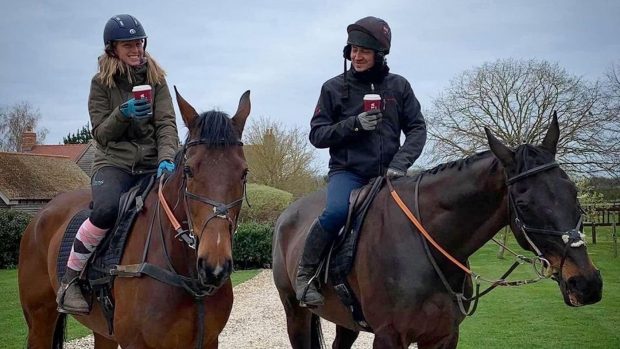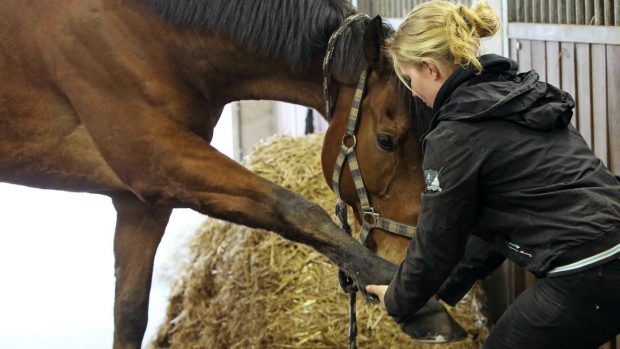Horse owners are being warned to keep a close eye on their horses’ teeth after research highlighted that bacteria may play a bigger role than was previously suspected in equine dental disease.
Alistair Cox from Edinburgh’s Royal (Dick) Vet school found that 60% of horses over the age of 15 have “periodontal” disease (infection of the structures that hold the tooth in place).
Although bacteria are known to be a cause of periodontal disease in humans, cats and dogs, their significance in horses had been less clear. Mechanical factors, such as food being packed between the horse’s teeth had been considered the primary cause of decay.
During his two years of research, Mr Cox examined the skulls of 22 horses. Although none of them had received treatment for periodontal disease, 16 had some form of it.
“The pain affects the animal’s ability to eat and its performance,” he said.
“This research highlights how common periodontal disease is. Yet many [horses] don’t receive treatment so are likely to be suffering in silence.
“As the horse gets older, its worth checking their teeth every six months,” he advised.
Rob Pascoe, an equine vet and equine dental technician, welcomed the research.
“More work is needed to show how much of an issue bacteria are in gum disease in horses,” he said.
The Horse Trust, which funded the research, has 95 horses — mostly geriatric — and has an arrangement with Bristol University, where vet students check the Trust’s horses’ teeth for free.
“We keep a close eye on weight changes and eating habits,” said Susan Lewis of the Trust. “Dentistry is not something people should cut back on.”
This news story was first published in the current issue of Horse & Hound (14 April, 2011)




